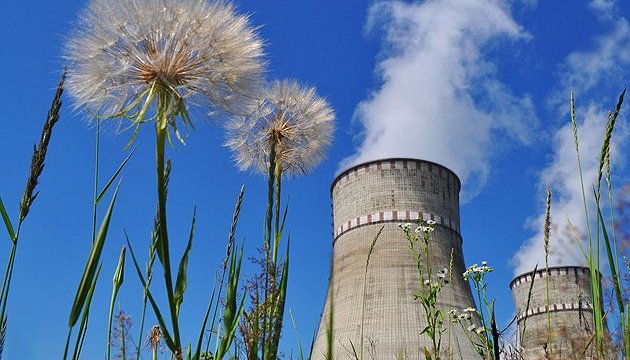UDC 628.132 • Issue 7 (35) / 2022 • 103-108 pages
https://doi.org/10.32782/geotech2022.35.20
Charniy, V. Dolin, O. Orlov, D. Skiba, L. Odukalets, E. Matselyuk, O. Arkhipenko, M. Stokolos, V. Nikolenko, S. Marisyk
Charniy D.V., D. Sc. (Eng.), Senior Researcher State Institution “Institute of Environmental Geochemistry of the National Academy of Sciences of Ukraine”, ORCID 0000-0001-6150-6433, dmitriych10@gmail.com
Dolin V.V., PhD (Eng.), Professor, Deputy Director, State Institution “Institute of Environmental Geochemistry of the National Academy of Sciences of Ukraine”, ORCID 0000-0001-6174-2962, vdolin@ukr.net
Orlov O.O., PhD (Biol.), senior researcher, State Institution “Institute of Environmental Geochemistry of the National Academy of Sciences of Ukraine”, ORCID 0000-0003-2923-5324, orlov.botany@gmail.com
Skiba D.V., head of environmental projects of Poltava GZK PJSC, Diana.Skiba@mine.ferrexpo.com
Odukalets L.A., researcher State institution “Institute of Environmental Geochemistry of the National Academy of Sciences of Ukraine”, ORCID 0000-0003–2569-6406, laoduk@i.ua
Matselyuk E.M., PhD (Eng.), senior researcher, Institute of Water Problems and Reclamation of the National Academy of Agrarian Sciences of Ukraine, ORCID 0000-0001-9960-6333, evgen1523@ukr.net
Arkhipenko O.M., junior researcher State institution “Institute of Environmental Geochemistry of the National Academy of Sciences of Ukraine”, ORCID 0000-0003-0955-3704, scerarcis@gmail.com
Stokolos M.O., junior researcher State institution “Institute of Environmental Geochemistry of the National Academy of Sciences of Ukraine”, ORCID 0000-0002-0471-1526, igns.ua@gmail.com
Nikolenko V.O., leading engineer State institution “Institute of Environmental Geochemistry of the National Academy of Sciences of Ukraine”, ORCID 0000-0002-9714-147X, borey@ua.fm
Marisyk S.V., graduate student of the Institute of Water Problems and Reclamation of the National Academy of Agrarian Sciences of Ukraine, ORCID 0000-0002-0100-7787, sergsi.marisik@ukr.net
Abstract
To establish the possible impact of bioengineering structures (BIS) on the surrounding groundwater, a field experiment was conducted to establish the current hydrodynamic characteristics of LSI, and verify the waterproofing properties of the protective layer of LSI bed PJSC “Poltava Mining and Processing Plant”. The methods of full-scale simulation experiment on the introduction of a fluorescent solution that simulates contamination during its passage through the LSI area during cleaning are used. It is established that the residence time of water that is treated in LSI is about one day. Thus, the speed of passage of treated water through the LSI (filtration rate) is about 20 m / h, which does not allow to treat wastewater properly. It is established that the speed of passage of purified water on LSI cards is much higher than the optimal speeds for phytoremediation facilities. Also statistically significantly revealed a significant hydraulic connection of LSI with groundwater, ie experimentally confirmed that the protective waterproofing screen is damaged, and in the process of LSI contamination of the surrounding groundwater. The list of statistical receptions which provide mathematical reliability of conclusions on connection of water in LSI constructions and adjoining ground waters of surrounding territories is offered. The results of research have shown that LSI facilities are hydraulically connected to the surrounding groundwater and, accordingly, LSI serves as a source of their secondary pollution. Therefore, there is a need to develop a set of measures to improve the efficiency of this LSI. One of the promising areas of research is the use of aquatic vegetation and aquatic organisms not only for phytoremediation, but also for phytoextraction and as a source of pure metals (alloying additives).
Key words: water, sewage, bioengineering facilities (BIS), phytoremediation, waterproofing screen.
Article
Reference
- Siegrist, L. (2017), Treatment using constructed wetlands. In: Decentralized Water Reclamation Engineering. Cham: Springer.
- Abou-Elela, I. (2017), Constructed wetlands: The green technology for municipal wastewater treatment and reuse in agriculture. In: Negm, A. (Ed.). Unconventional Water Resources and Agriculture in Egypt. The Handbook of Environmental Chemistry. Vol. 75.
- Thorslund, , Jarsjo, J, Jaramillo, F., Jawitz, J.W., Manzoni, S., Basu, N.B., et al. (2017), Wetlands as large-scale nature-based solutions: Status and challenges for research, engineering and management. Ecological Engineering. https://doi.org/10.1016/j. ecoleng.2017.07.012.
- Christofilopoulos, , Kaliakatsos, A., Triantafyllou, K., Gounaki, I., et al. (2019), Evaluation of a constructed wetland for wastewatertreatment:Addressingemergingorganiccontaminantsand antibiotic resistant bacteria. New Biotechnology. Vol. 52 p. 94-103. https://doi.org/10.1016/j.nbt.2019.05.006.
- Mięsiak-Wójcik, , Turczyński, M., Sposób J. (2018), Diverse sediment permeability and implications for groundwater exchange in closed Lake-Wetland catchments (West Polesie, East Poland). Wetlands. https://doi.org/10.1007/s13157-018-1027-4.
- Wang, X., Xu, J.L., Sheng, L.X., Liu, X.J. (2018), A review of research on substrate materials for constructed wetlands. Materials Science Forum.
- Donde, O., Cuicui, T., Yingying, T., Bangding, X. (2018), Efficacy of macrophyte dominated wastewater enclosure as post- treatment alternative in domestic wastewater quality polishing for eradication of faecal pathogenic bacteria pollution. Process Safety and Environment Protection. https://doi.org/10.1016/j.psep.2017.12.023.
- Demyanov, V. (2010), Geostatistika: teoriya i praktika. [Geostatistics: theory and practice. Institute for Problems of SafeDevelopment of Nuclear Power Engineering]. Moscow: Nauka [in Russian].
- Brandt, (2003), Analiz dannykh statisticheskiye i vychislitel’nyye metody dlya nauchnykh rabotnikov i inzhenerov. [Analysis of data, statistical and computational methods for scientists and engineers]. Moscow: Mir, OOO «Izdatel’stvo AST» [in Russian].
- Stevens, P. (2002), Applied multivariate statistics for the social sciences university of cincinnati. Mahwah, New Jersey London: Lawrence erlbaum associates, publishers.
- Badzinsky,H. (2001), Handbook of probability distributions. SPb.: Nauka.
- Gorshkov, V. (2010), Ecological monitoring. Textbook allowance c. Vladivostok: Publishing house of TGEU.
